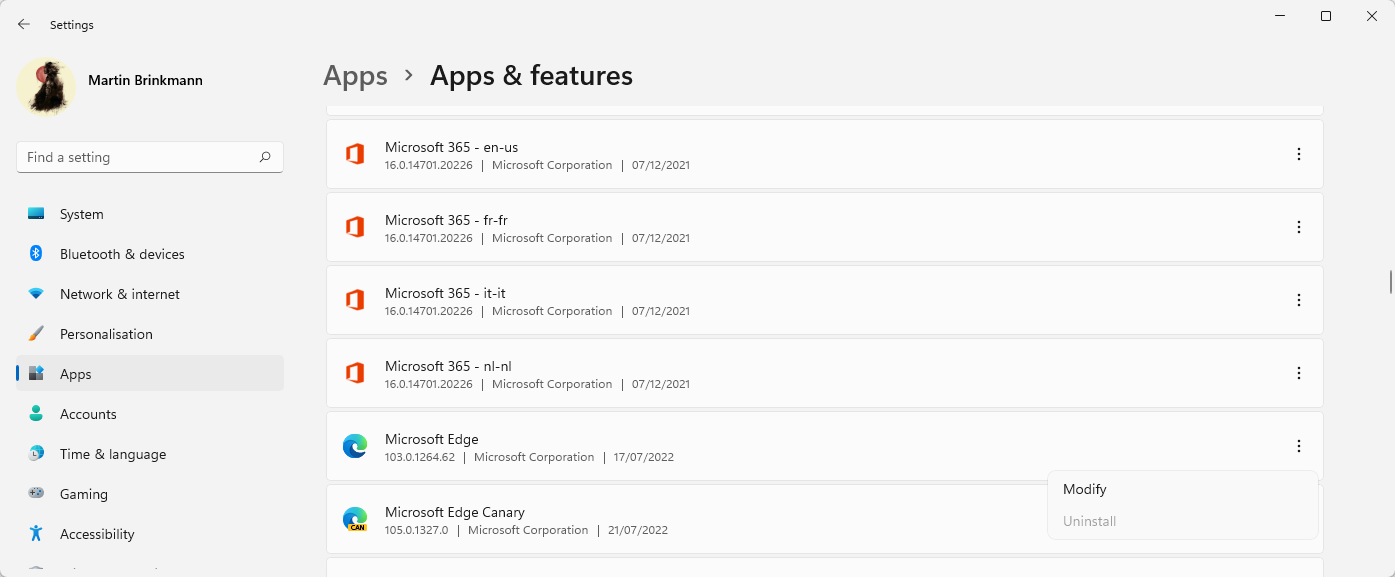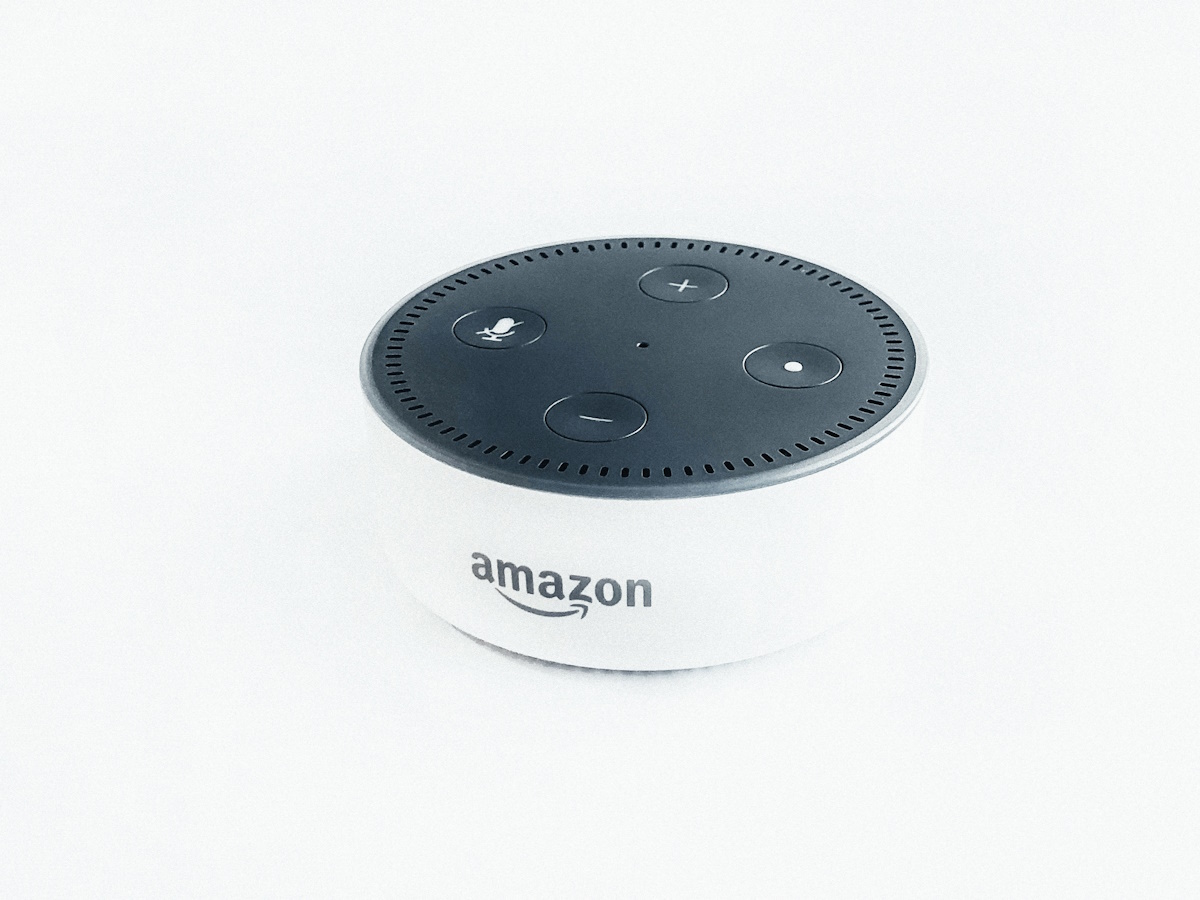Europe's Digital Markets Act has serious implications for Apple, Google, Amazon, Facebook and Microsoft

Companies such as Apple, Google and Amazon could soon face fines of up to 20% of their worldwide turnover or even behavioral or structural remedies, when they violate rules laid out in the European Union's Digital Markets Act.
The Digital Markets Act defines rules for large online platforms, called gatekeepers. In particular, its rulesets defines what gatekeepers have to do and what they can't do any longer.
An organization is considered a gatekeeper if it has over 45 million active end users each month or 10,000 yearly active business users. Gatekeepers furthermore have an annual European Union turnover of over 7.5 billion Euro or more in the last three financial years, or an average market capitalisation to at least 75 billion Euro in the last financial year. They also need to provide the same core platform service in at least three Member states.
Core platform services mean any of the following according to the DMA: online intermediation services, online search engines, online social networking services, video-sharing platform services, number-independent interpersonal communication services, operating systems, web browsers, virtual assistants, cloud computing services, and online advertising services.
The list of prohibited activities addresses common anti-consumer and anti-competition practices of gatekeepers.
In particular, gatekeepers may no longer do the following:
- Pre-install "certain apps or software", or prevent users from "easily un-installing" these products.
- Require that software such as web browsers is installed "by default when installing an operating system" (use certain bundling practices).
- Block developers and companies from using third-party payment platforms for application sales.
- Give their services and products an unfair advantage by ranking them higher than products of other companies.
- Use private data collected by one service "for the purpose of another service".
- Impose unfair conditions on business users.
Companies like Apple, Microsoft, Google or Amazon are affected directly by the DMA. Apple, for instance, blocks third-party payment platforms, prohibits the use of other browser engines than its own, and installation of other application stores.
Google's practice of pushing Android manufacturers to include certain company apps on Android could come to an end, and Google Search can no longer push YouTube and other Google Products over others.
Microsoft's practice of integrating Bing Search heavily in Windows and preventing the uninstallation of certain apps on Windows would also violate the rules.
Other gatekeepers are affected to varying degrees as well.
The Digital Markets Act defines new rules that gatekeepers need to follow next to this.
- Unsubscribing from core platform services needs to be as easy as subscribing.
- Basic functionality of instant messaging services need to be interoperable.
- Provide business users with "marketing and advertising performance data on the platform".
- Inform the European Commission about acquisitions and mergers.
Gatekeepers that do not comply risk first offender fines of up to 10% of their worldwide turnover. Repeat offender fines go up to 20% of the gatekeeper's worldwide turnover. Gatekeepers that fail to comply at least three times in eight years may face an open market investigation, which could lead to the imposing of behavioral or structural remedies.
The DMA is expected to be adopted by the European Council in September 2022. Once signed by the President of the European Parliament and the President of the Council, the DMA will start to apply six months later. The full DMA document is available here (PDF file).
The document lacks information on how certain changes can be achieved by gatekeepers. The interoperability requirement for instant messaging services alone raises questions on how this can be achieved in a short period.
Now You: what is your take on the DMA?






















thanks for info
If I read this right the repeated use of “business users” will mean that end users can be screwed, and long as business users aren’t?
Good Act but EU will just get $0.
The EU is now doing what the US government and Congress men and women should have done, but alas, too many US politicians receive Big Tech funding.
For instance:
“While a bipartisan antitrust bill targeting Big Tech makes its way through Congress, industry giants have been showering both Democrats and Republicans with tens of thousands of dollars in contributions. Their political action committees, executives, and lobbyists have targeted both critics and supporters of the legislation, which is aimed at reining in some of the most powerful tech companies in the world.”
https://www.thenation.com/article/politics/big-tech-congress/
https://www.politico.com/newsletters/morning-tech/2021/04/16/whos-still-taking-big-techs-money-794719
Gate Keepers ! Those who decide who is let in or out !
Money, money and more money.
Almost doesn’t matter what the question or problem is…..money is the answer.
The GAFAM stranglehold on the market and what the EU is doing to try to break it reminds me how US lawmakers once had real balls and took on the monopoly of the Bell System by forcing the breakup of AT&T.
It appears the the US once had more guts than it now has against unfair practices by giant businesses. The only difference I see between what US lawmakers did to undo AT&T is that its domination was US centric while the GAFAM’s monopoly is worldwide.
This possibly highlights that as long as the damages to business currently made by GAFAM’s monopolies are worldwide, the US gets something more out of it than markets outside of the US while AT&T’s monopoly was incurring damages to business only within the US in its time.
It might explain why not enough truly effective action has been done yet in the US to curtail the unfair ambitions of the GAFAM actors. This and the gradual erosion of the moral compass since the 70’s that once inspired US lawmakers to really act against unfair business practices of US companies.
@Martin Brinkmann
Thank you Martin for publishing my comment even if I mistakenly pressed “Post Comment” before I had entered my full email address.
Cheers.
@Martin P.
No need to enter an email. I don’t even know why it’s there.
@Martin Brinkmann
Why do you still refuse to use a user login to post comments? ‘Member’ users can post instantly. You’d get far more engagement and discussion. Even approve a few comments before the user can directly post.
And non-users can post as now with approval.
“Block developers and companies from using third-party payment platforms for application sales”. What does that entail exactly I wonder. For example, does this mean that users will no longer be able to use a credit card to purchase goods or services?
Even purchasing something online without a credit card involves the services of a third party payment provider such as Mollie for example. https://www.mollie.com/en/privacy Is this such a bad thing?
When using my Android phone to buy stuff I avoid using Google as a payment processor by having the amount charged to my mobile Provider who subsequently adds it to my monthly mobile subscription charge. Does this new rule mean I won’t be able to do that anymore?
Be interested to see how this aspect develops.
Apart from that though it’s good to see that the EU is taking on these giants of industry and bringing them to heel. Google and Apple especially have has it their own way for far too long.
But will it lead to GAFAMs withdrawing their services from the EU market is the big question now.
@TelV: The proposed law would make it ILLEGAL for “gatekeepers” to block third-party app stores. The most obvious target is Apple, which forces developers and customers to use the Apple Store exclusively (and where Apple takes a 30% cut of the developers’ action).
@TelV
I think you’ve misunderstood.
“In particular, gatekeepers may NO LONGER do the following:
[…]
Block developers and companies from using third-party payment platforms for application sales”.
I wish we would get this in America as well. Its time Apple, Microsoft and Google stop their crap.
Good. However, I would go one step further and make plans seeking to become digitally independent from America.
The reliance on Russia for energy for example should have been a big wakeup call on how it is not a good idea to put all your eggs in one basket; the same applies to America. Looking at the direction America is going in, it’s time Europe distanced itself from them too wherever possible and have their own products and services in place. Not only because of the excessive greed and moral bankruptcy of American companies, but from a national security perspective, as it’s quite possible America is heading into a civil war.
Whack-a-mole! – snafu
Although I agree with most of those proposals, the infrastructures have already been tightly in-place for years and the EU’s DMA tactic of threats over big digital corps is unlikely to wash and have the desired affect. Wake me up when it does…
I disagree. The EU has big teeth and is prepared to bite hard when push comes to shove: https://ec.europa.eu/commission/presscorner/detail/en/MEMO_17_1785
Google lost its appeal: https://www.irishlegal.com/articles/european-court-upholds-eur242-billion-fine-imposed-on-google
Europe’s Digital Markets Act, expected to be adopted by the European Council in September 2022 and to be applied six months later is more than good news because it is an ethical act. Despite the tremendous amount of lobbying in Brussels the EU is bound to act, to react to GAFAM’s worldwide imperialistic domination. We are not facing an anti free market scheme but a necessary, indispensable reaction to policies which break the very basis of free markets : anti-competition.
Now, will this DMA be adopted, will it be adopted fully, will it be applied? GDPR itself is often biased in its application and occasionally totally dismissed.
Applied or not I personally will continue to resist to the maximum possible extent to the GAFAM monopolies, policies, practices. I may just hope that the wide audience presently worshiping the GAFAM companies wake up. It seems that these companies have managed to have their practices accepted as a commonplace, and not only by citizens but by establishments themselves. There are alternatives to all GAFAM products and policies, but maybe would it be welcomed that government communication to the masses stop referring to these companies and include alternatives. At this stage such a focus on the well established GAFAM is somewhat, in my view, business segregation so to say. “Black lives matter” they sure do and ‘Non-GAFAM business lives matter’ as well.
Fed up, truly sick and tired of Google, Amazon, Facebook, Apple, Microsoft, the Daltons of this era. It’s time they get controlled, they’ve done and continue to do much too much harm. Long live free markets and long live free competition.
@Tom Hawack,
Tip of the hat for your comments. I could not have said it any better. I cannot wait enough for the day America could see the DMA’s implementation in its backyard. Enough is enough!
Replace the main actor of this video by any of the GAFAM companies and you’ll get the analogy with what pushing other businesses corresponds to : [https://www.youtube.com/watch?v=Iimj0j4NYME]
“The Digital Markets Act defines rules for large online platforms, called gatekeepers. In particular, its rulesets defines what gatekeepers have to do and what they can’t do any longer.”
That lawmakers are now more frequently writing laws for specific sectors of the economy show that there is no general principle involved apart from controlling that sector
Whatever happened to the concept of equality under the law ?
These laws constitute pure discrimination.
@Howard Pearce:
Tech companies have been extraordinarily successful in evading antitrust and consumer-protection enforcement for over two decades. These laws constitute a rectification of that lapse. In essence, “digital gatekeepers” are finally starting to be treated *equally* instead of being given a blanket pass just because computers and the Internet are involved.
I think this is a good thing. It just remains to be seen what they will come up with to circumvent the new rules. Furthermore, I read that there could be issues related to overlapping regulations (Antitrust) that could cause confusion.
@Shiva:
“It just remains to be seen what they will come up with to circumvent the new rules.”
That was my first thought when I read this:
“[To be considered a gatekeeper, an organization must also] provide the same core platform service in at least three Member states.”
My concern here is the artificial, cosmetic segmentation of what is fundamentally a single core platform service into multiple country-specific services. (I don’t have time to read all 230 [admittedly sparse!] pages of the Act to see whether the Act itself addresses this possible avenue of evasion or whether it is left to implementing regulations.)
Based on their past behavior, I’m guessing that the 800-pound gorillas of the Net — the GAFAM companies (or is it now AAMAM?) — will also weigh the additional revenue they can garner by violating the Act against the amount of the fine that is *actually* likely to be imposed. (The fines are “up to” 10% or 20% of worldwide gross revenue. To my knowledge, the EU’s Directorate-General for Competition has never come *close* to imposing the maximum fine for even *egregious* violations of the laws *they* enforce.) And when a former EU president can rotate out to become chair of Goldman Sachs International, ethical safeguards against revolving-door payoffs to “helpful” officials would seem to be as absent in the EU as they are in the US.
But notwithstanding these concerns, I’m heartened that at least *one* government in the world is proposing to rein in the anti-competitive and anti-consumer abuses of tech companies.
As usual, the EU is trying harder to take over US companies. As usual, it won’t have the desired effect.
The EU is not trying to take over US companies as much as it is trying to rein in the abuses of customers that US companies seem to get away with domestically. Good for the EU.
I can write a long story about how good this will be.
but let me try to keep it simple by writing that for differentiation of the automation market nothing could have been done better.
This gives small one-man businesses and small and medium-sized enterprises a chance to grow again.
This will allow prices to fall again but, more importantly, the stranglehold that the user is currently in must be released.
Usually, when the European Union makes a decision, it is adopted world-wide. Hopefully, this time, too.
This is so that development can resume for the good and not just to serve the shareholders’ wallets.
The shareholders as a whole have only done one thing in the last 40 years and that is to perfect their own earnings model, even more.
Perhaps I am being too soft in my assessment of the shareholders in general and I regret that.